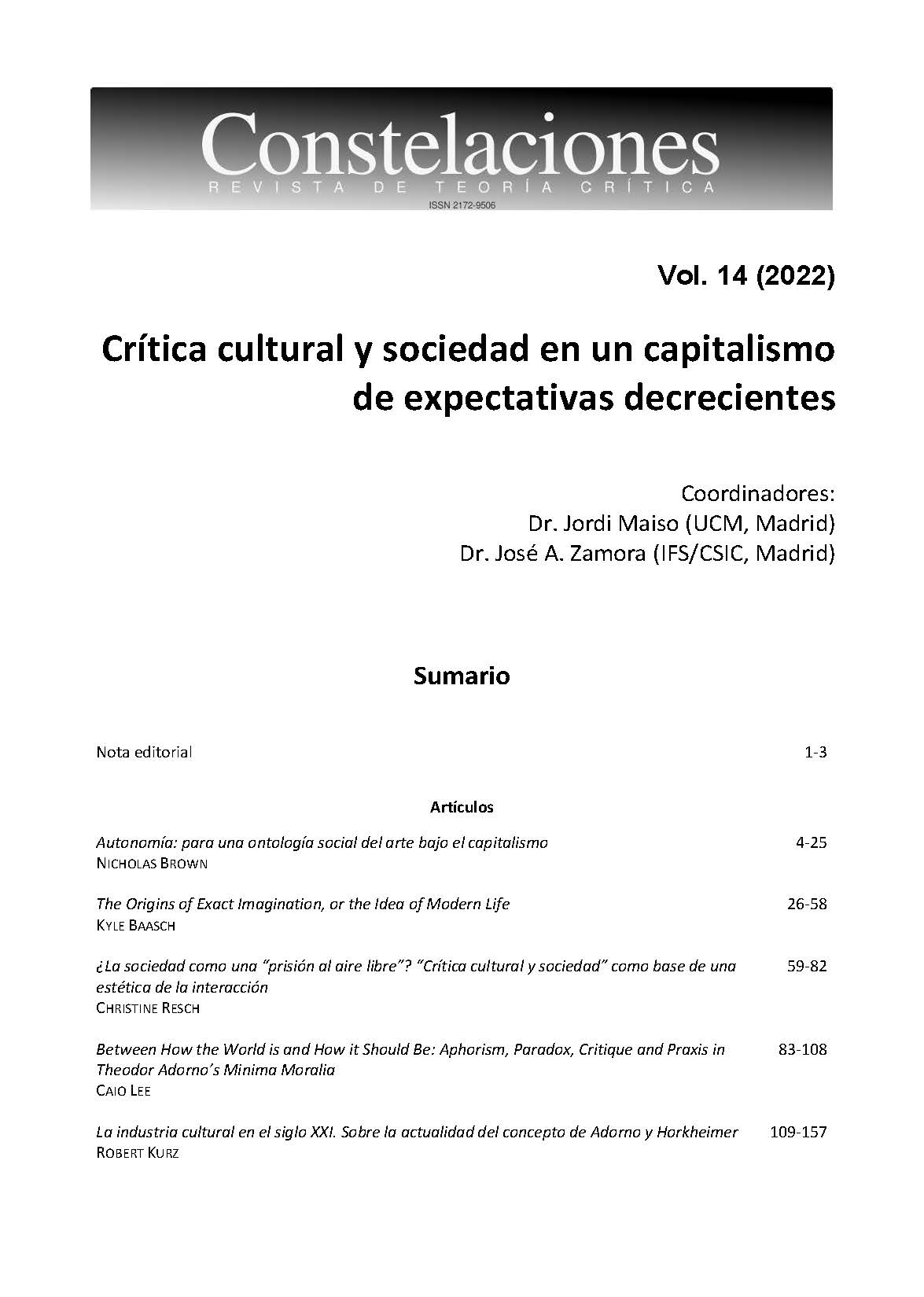La industria cultural en el siglo XXI. Sobre la actualidad del concepto de Adorno y Horkheimer
Keywords:
culture industry, critical theory, bourgeois culture, postmodernism, M. Horkheimer, Th. W. Adorno, internet, publicity, virtual world, countercultureAbstract
This text addresses the topicality of M. Horkheimer's and Th. W. Adorno's critique of the culture industry. Its relevance is highlighted by means of a twofold strategy: to differentiate it from the elitist pseudo-criticism based on bourgeois high culture, on the one hand, and from the postmodern cult of superficiality, on the other, for both are two sides of the same coin. The core of this update is the commodity form, ignored by these two pseudo-critiques, but which played a decisive role in the critical theory of the culture industry and is also key to the analysis of the technological and cultural changes in the Internet era. It is from this key that the essay carries out a critique of these recent changes: from technological reductionism to the vampirization and depletion of cultural reserves, including the role of publicity, the virtualization of the lifeworld, the interactivity or the false gratuity of products.
Downloads
References
HEINE, Heinrich (1979): Die romantische Schule, en Düsseldorfer HeineAusgabe: Heinrich Heine–Historischkritische Gesamtausgabe der Werke. Ed. de Manfred Windfuhr, Vol. 8/1, Hamburgo: Hoffmann und Campe, 121249.
HORKHEIMER, Max y ADORNO, Theodor W (1947): Dialektik der Aufklärung. Philosophische Fragmente, en Gesammelte Schriften (Vol. 3). R. Tiedemann (ed.). Fráncfort: Suhrkamp, 1986.
Downloads
Published
How to Cite
Issue
Section
License
Copyright (c) 2022 Robert Kurz

This work is licensed under a Creative Commons Attribution-NonCommercial-ShareAlike 4.0 International License.
Authors who have publications with this journal accept the following terms:
1. Authors will retain their copyright and grant the journal the right of first publication of their work, which will be simultaneously subject to the License of recognition of Creative Commons CC BY-NC-SA 4.0 that allows third parties to share, redistribute and adapt the work provided it is for non-commercial purposes and its author and first publication in this journal is indicated.
2. Authors may adopt other non-exclusive distribution license agreements for the version of the published work (e.g., depositing it in an institutional electronic archive or publishing it in a monographic volume) provided that the initial publication in this journal is indicated.
3. Authors are permitted and encouraged to disseminate their work via the Internet (e.g., in institutional telematic archives or on their website) before and during the submission process, which can produce interesting exchanges and increase citations of the published work. (See The Effect of Open Access).
Data confidentiality
1. Constelaciones. Revista de Teoría Crítica guarantees that the data you send us will only be used to meet the requests made in this message.
2. Your data will not be passed on to third parties.
3. You may request that your data be removed from our records at any time.





